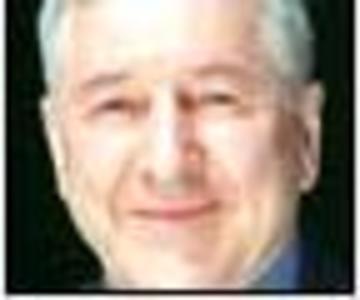Speak, mighty head, and tell us the secret thing that is in thee. - from Melville's Moby-Dick
Much will be expected this weekend when Michael Ignatieff climaxes the Liberal Party convention with his acceptance speech. The man with the head of a sphinx has much spoken and written in the past about what he calls the first priority of the party he now leads: maintaining the unity of Canada.
But, in his current book, True Patriot Love, where he explores patriotism as the enduring family preoccupation of (according to the subtitle) "four generations in search of Canada," he, the spokesman for the fourth generation, remains strangely elusive.
He recognizes that Canada has a problem of unity with its fragmented national founding myths: "We cannot create a single myth, like the United States, because we have three competing ones, English Canadian, French Canadian and Aboriginal. Three peoples share a state without sharing the same sense of the country at all. It is small wonder, then, that we have never been sure we can continue to imagine a common future."
So what solution does he offer? He's at his best when identifying the national vision declared by aboriginal leaders and the 1996 report of the Royal Commission on Aboriginal Peoples. "Our treaty relations with aboriginal peoples presuppose that we reason together, nation to nation, across the divide of history. The treaty relationship says Aboriginals must be treated as constituent peoples. They cannot be treated just as individual citizens. They were here first. They had their own laws and institutions. The rest of us came as conquerors. Aboriginals accept the new country, but we must deal with them as a people."
He also recognizes that the three main founding mythologies are not only different, they are incompatible - unless formulas of reconciliation can be identified. That's why Quebec's successive governments declare the 1982 patriation of the Constitution to be illegitimate. It's why the royal commission's main recommendations have remained dead letters.
"Our histories are many, and the histories of French, English and Aboriginal conflict with each other," Mr. Ignatieff writes. But, unlike Pierre Trudeau, who offered a formula of reconciliation in "one Canada with two official languages," Mr. Ignatieff barely goes beyond recommending empathy: "To be a citizen of Canada is to imagine the feelings of those who do not believe what we believe. We have to enter into these feelings if we want to keep the country together."
But empathy isn't always possible, nor will it do. Few Canadians can enter into the minds, the world views, of aboriginals. And it will not suffice to grasp where the "other" is coming from to proceed to a resolution.
When Mr. Ignatieff, as a Harvard professor, gave the keynote speech to the Liberal convention in March of 2005, he defined the party's first priority: "As I see it, the Liberal Party has three essential purposes. The first, to protect and to enhance the national unity of our country."
He spoke when the hearings on the sponsorship scandal were daily discrediting federalism. The Parti Québécois rode high in the polls and proposed as its first order of business after taking office to hold a referendum on unilateral secession.
Mr. Ignatieff warned the minority Liberal government: "Liberals know that there are times in politics, and they try our souls as a people and they try our souls as a party, when politics means saying a clear no, and a clear yes.
"So, my friends, the word is 'no,' no to national division, no to the nationalist blackmail, no to the mean-spirited gaze of the Bloc Québécois. No, no, to the false utopia of the separatists, no to separatism, no, no, forever. But my friends, yes, a big yes, yes to the renewal of federalism, yes to the updating of our national institutions, yes to Canada."
The surge of separatism has since abated, and the threat of a referendum went into remission. But the fundamental problem of two conflicting myths remains while Quebec Premier Jean Charest refuses to recognize the legitimacy of the 1982 Constitution and repudiates the Supreme Court's pronouncement on the conditions for secession by defending Lucien Bouchard's law claiming the right to secede unilaterally.
In his 1993 book, Blood and Belonging: Journeys into the New Nationalism, Mr. Ignatieff wrote: "For me, Trudeau remains the champion of federalism I have wanted to believe in all my life." Where does he stand now?
He now writes: "How do we make this place worthy of our dreams? How do we fix what is so obviously wrong? Those questions became my own. It's why I came back. It's why I entered politics. It's why I'm here."
This weekend, Mr. Ignatieff must provide a much clearer answer to those questions. Anything else will be mere pirouettes.
William Johnson is an author and a former president of Alliance Quebec.
Where does the 'true patriot' really stand on national unity?
Ignatieff - le PLC et le Québec

William Johnson53 articles
William Johnson, a Quebec journalist, is a former president of Alliance Quebec






















Laissez un commentaire Votre adresse courriel ne sera pas publiée.
Veuillez vous connecter afin de laisser un commentaire.
Aucun commentaire trouvé